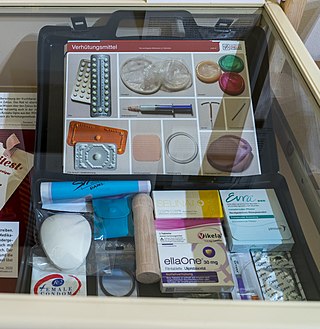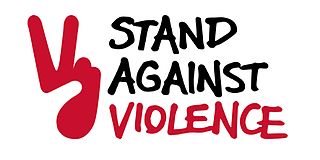
Sex education, also known as sexual education, sexualityeducation or sex ed, is the instruction of issues relating to human sexuality, including human sexual anatomy, sexual activity, sexual reproduction, safe sex and birth control, sexual health, reproductive health, emotional relations and responsibilities, age of consent, and reproductive rights. Sex education that includes all of these issues is known as comprehensive sex education, and is often opposed to abstinence-only sex education, which only focuses on sexual abstinence. Sex education may be provided as part of school programs, public health campaigns, or by parents or caregivers. In some countries it is known as "Relationships and Sexual Health Education".
Michael G. Flood is an Australian sociologist and a professor at the Queensland University of Technology School of Justice. Flood gained his doctorate in gender and sexuality studies from the Australian National University. His areas of research are on violence against women, fathering, pro-feminism, domestic violence, the effects of pornography on young people, safe sex among heterosexual men, men's movements as a backlash to the feminist movement, men's relationships with each other and with women, homophobia, men's health, and gender justice. He is a regular contributor to and is regularly quoted in the media on these and other issues.
Comprehensive sexuality education (CSE) is a sex education instruction method based on a curriculum that aims to give students the knowledge, attitudes, skills, and values to make appropriate and healthy choices in their sexual lives. The intention is that this understanding will help prevent students from contracting sexually transmitted infections (STIs) such as HIV and HPV, reduce unplanned and unwanted pregnancies, as well as lowering rates of domestic and sexual violence.
Teen dating violence is the physical, sexual, or psychological / emotional abuse within a dating relationship among adolescents. Intimate partner violence (IPV) has been a well examined and documented phenomenon in adults; however, there has not been nearly as much study on violence in adolescent dating relationships, and it is therefore not as well understood. The research has mainly focused on Caucasian youth, and, as of 2013, there are no studies which focus specifically on IPV in adolescent same-sex relationships.
The Center Against Domestic Violence is an American not-for-profit organization dedicated to preventing violence in the family and promoting the well-being and economic independence of women and children. It provides safe shelters, a network of supportive services, advocacy, education and resource information, and coalition building.

The Survivors Trust is a national umbrella agency for over 125 specialist voluntary sector agencies throughout the UK and Ireland providing a range of counselling, therapeutic and support services working with women, men and children who are victims/survivors of rape, sexual violence and sexual abuse. The organisation aims to offer a national collective voice to support and empower survivor groups, to educate and inform acknowledgment of and response to sexual abuse on a local and national level.

Domestic violence is violence or other abuse that occurs in a domestic setting, such as in a marriage or cohabitation. Domestic violence is often used as a synonym for intimate partner violence, which is committed by one of the people in an intimate relationship against the other person, and can take place in relationships or between former spouses or partners. In its broadest sense, domestic violence also involves violence against children, parents, or the elderly. It can assume multiple forms, including physical, verbal, emotional, economic, religious, reproductive, financial abuse, or sexual abuse. It can range from subtle, coercive forms to marital rape and other violent physical abuse, such as choking, beating, female genital mutilation, and acid throwing that may result in disfigurement or death, and includes the use of technology to harass, control, monitor, stalk or hack. Domestic murder includes stoning, bride burning, honor killing, and dowry death, which sometimes involves non-cohabitating family members. In 2015, the United Kingdom's Home Office widened the definition of domestic violence to include coercive control.
Legal Momentum, founded in 1970, is a 501(c)(3) nonprofit and the nation's first and longest-serving legal advocacy group for women in the United States. Betty Friedan and Muriel Fox were its co-founders and Muriel Fox is an ongoing leader of the organization. Carol Baldwin Moody became President and CEO in April 2018. The organization, founded as the NOW Legal Defense and Education Fund, became Legal Momentum in 2004. Legal Momentum is a multi-issue organization dedicated to advancing women’s rights and gender equality, particularly in the areas of equal education opportunities; fairness in the courts; ending all forms of gender-based violence; workplace equality and economic empowerment. The organization employs three main strategies: impact litigation, policy advocacy, and educational initiatives. It is headquartered in New York City.
Futures Without Violence is a non-profit organization with offices in San Francisco, Washington, D.C., and Boston, United States, with the goal of ending domestic and sexual violence. Futures Without Violence is involved in community-based programs, developing educational materials, and in public policy work.

Stand Against Violence is a charity focusing on violence prevention across England and Wales with a unique and impacting approach to educate pupils about violence and its consequences. The charity uses the violence prevention evidence base to target educational interventions at the contributing factors to violence.

David Allen Wolfe is an academic, psychologist and author specializing in issues of child abuse, domestic violence, children and youth. His work includes the promotion of healthy relationships through school programs, with a major focus on the prevention of child abuse and neglect, bullying, dating violence, unsafe sex, substance abuse and other consequences of unhealthy relationships.

Historically speaking, lesbian, gay, bisexual, and transgender (LGBT) people have not been given equal treatment and rights by both governmental actions and society's general opinion. Much of the intolerance for LGBT individuals come from lack of education around the LGBT community, and contributes to the stigma that results in same-sex marriage being legal in few countries (31) and persistence of discrimination, such as in the workplace.
The National Domestic Violence Hotline (NDVH) is a 24-hour confidential service for survivors, victims and those affected by domestic violence, intimate partner violence and relationship abuse. Advocates are available at 1-800-799-SAFE (7233) and through online chatting at www.TheHotline.org. All calls are free and confidential. The NDVH was created through the Violence Against Women Act (VAWA) in the United States. The NDVH offers a variety of help options. The NDVH provides information on topics such as domestic violence, financial abuse, LGBTQ relationship abuse, domestic violence policy updates, advocate information, what to expect when calling the hotline, and life after abuse and domestic violence. The NDVH launched loveisrespect, a resource empower youth to prevent and end dating abuse and promote healthy dating relationships.

Established in 1987 by British Quaker Alec Davison,[1] Leap Confronting Conflict is a UK-Based charity delivering training to young people aged 11–25, and the professionals working with them, to manage the conflict they experience in their lives and reduce violence in our communities.
Sports are activities involving physical exertion and skill, in which a team compete against another as a form of entertainment. The universality of sport allows it to encompass several different rights. Most sporting events have a huge impact on human rights. Human rights are rights that are believed to belong to justifiably every person. In particular youth sport which concerns the rights of children. The practice of sport is beneficial to children as it can have a positive impact on their physical, mental, psycho-motor and social development skills. Sport is helpful in a human rights context as it encourages the integration of children from different cultural or economic backgrounds, those with disabilities and helps promote gender equality.
Elizabeth A. Kelly CBE is a British professor and director of the Child and Woman Abuse Studies Unit (CWASU), London Metropolitan University, former head of the, now defunct, Women's National Commission, and co-chair, along with Marai Larasi, of the End Violence Against Women Coalition.
End Violence Against Women Coalition (EVAW) is a UK-based coalition of individuals and organisations which campaigns to end all forms of violence against women. It was founded in 2005 and became a registered charity 31 March 2015.
Gender inequality in curriculum exposes indications that female and male learners are not treated equally in various types of curriculum. There are two types of curricula: formal and informal. Formal curricula are introduced by a government or an educational institution. Moreover, they are defined as sets of objectives, content, resources and assessment. Informal curricula, also defined as hidden or unofficial, refer to attitudes, values, beliefs, assumptions, behaviours and undeclared agendas underlying the learning process. These are formulated by individuals, families, societies, religions, cultures and traditions.

The COVID-19 pandemic has had a considerable impact on female education. Female education relates to the unequal social norms and the specific forms of discrimination that girls face. In 2018, 130 million girls worldwide were out of school, and only two out of three girls were enrolled in secondary education. The COVID-19 pandemic may further widen the gaps and threatens to disrupt the education of more than 11 million girls. In addition, girls are less likely to have access to the Internet and online learning.
Our Watch, formerly Foundation to Prevent Violence Against Women and their Children, is an Australian organisation that exists to help prevent violence against women and their children. Founded in mid-2013 with Natasha Stott Despoja as founding chair, the organisation is based in Melbourne, Victoria. It is an independent non-profit organisation that is jointly funded by all states and territories of Australia.







